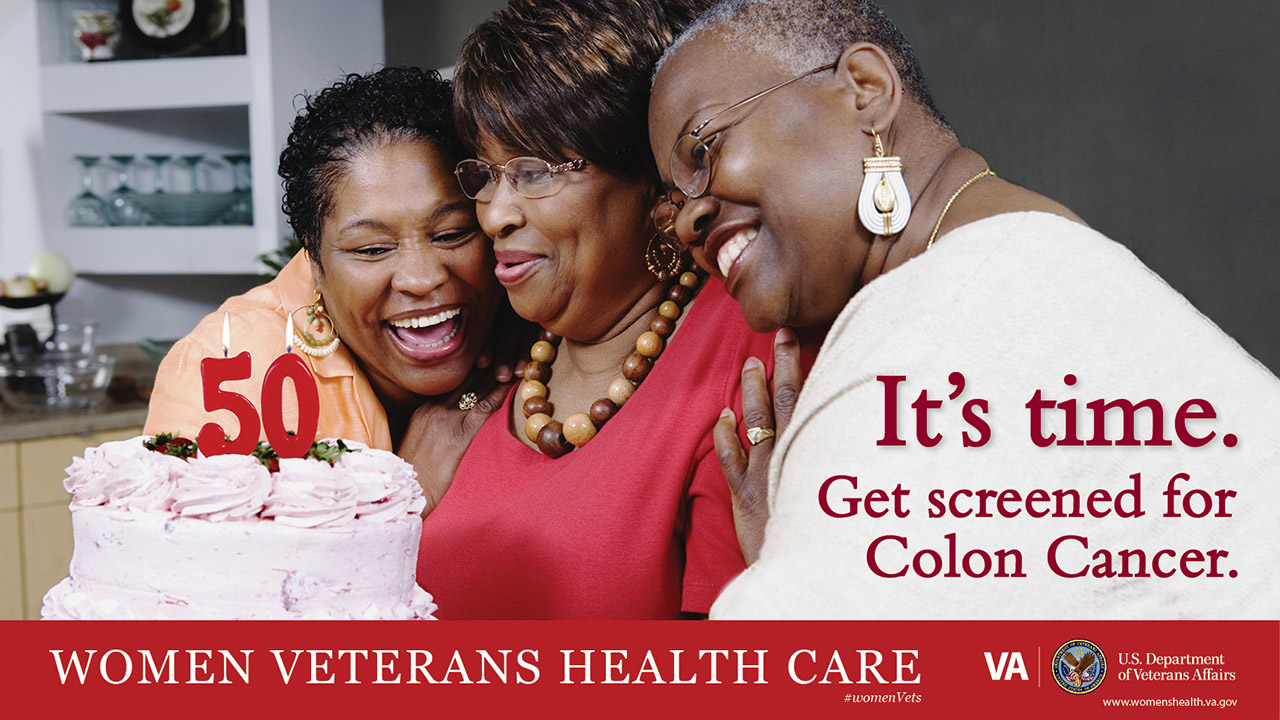

Colon cancer is one of the most common diagnoses among both men and women in the United States. Approximately 4,000 Veterans are diagnosed with colon cancer each year.
The American Cancer Society estimates in 2017 there will be 135,430 new cases of colon and rectal cancer in men and women, resulting in 50,260 deaths. This number exceeds the total number of American combat deaths during the Vietnam War. But it doesn’t have to be. When colon cancer is found, and removed early, the chances of a full recovery are very good.
Most importantly — get screened.
The most effective way to reduce your risk of colon cancer is by having regular colon cancer screening tests. It is recommended to begin screening for colon cancer at age 50 years and continuing until age 75 years. It can take as many as 10 to 15 years for a polyp to develop into colon cancer and there may not be noticeable symptoms at first. The risk of getting colorectal cancer increases as you get older. More than 90 percent of cases occur in people who are 50 years old or older.
Are there symptoms?
Colon cancer or polyps that lead to colon cancer often don’t cause symptoms. That is why getting screened regularly for colon cancer is so important. If you have any of these symptoms, talk to your doctor:
Colon cancer risks and prevention.
The risk of having colon cancer increases if you are over 50 years old, have a family history or personal history of colon cancer, smoke, or have type 2 diabetes.
In addition to lifestyle factors and personal history, there are strong links between diet, weight, and exercise and the risk of colon cancer. To reduce the risk of colon cancer and improve your overall health it is important to:
VA’s priority is to screen its patients aged 50+ for colon cancer.
VA has been an early leader in recognizing the value of colon cancer screening and in taking a comprehensive approach to its screening program by developing policies and guidance about screening. VA’s screening rate exceeds the National Colorectal Cancer Roundtable (NCCR) goal and the national average, receiving Hall of Fame recognition by the NCCR.
Originally posted at VAntagepoint blog.